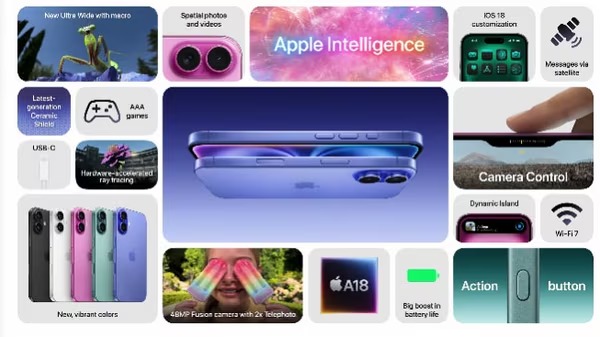- November 18, 2024
Gemini AI delayed for iPhone users amid Apple-OpenAI partnership exclusivity: Report

The world of artificial intelligence has witnessed rapid advancements in recent years, with major tech companies vying for dominance in the space. Among these, Gemini AI, a highly anticipated product from Google’s AI division, has garnered significant attention. However, recent reports suggest that the release of Gemini AI for iPhone users has been delayed due to an exclusive partnership between Apple and OpenAI, creating a ripple effect in the AI community. This development has sparked widespread speculation, as many were expecting the launch of Gemini AI on Apple devices in the near future. The delay has raised questions about the competitive dynamics between Apple, Google, and OpenAI, and the evolving landscape of AI integration into consumer devices. Gemini AI, introduced by Google as the successor to its widely successful AI language model, Bard, was poised to revolutionize the way users interact with technology. The AI tool promises to offer advanced conversational capabilities, assist with a range of tasks, and enhance productivity with its natural language processing abilities. For users of Android devices and Google’s own ecosystem, Gemini AI seemed like a major leap forward. However, its delayed availability on iOS, particularly iPhones, is a significant development that has left many wondering about the reasons behind the hold-up. At the heart of the delay is an exclusive partnership between Apple and OpenAI, the company behind the GPT (Generative Pre-trained Transformer) series of AI models, including the popular ChatGPT. According to sources within the tech industry, Apple has entered into a deal with OpenAI to integrate its advanced language models, like GPT-4, into Apple’s ecosystem, starting with iOS devices. This exclusivity arrangement appears to be a strategic move to position Apple as a key player in the AI space, especially in direct competition with Google and other AI innovators. The Apple-OpenAI collaboration has already borne fruit in various forms, such as the integration of OpenAI’s models into Apple’s proprietary applications, including Siri and iMessage. While these integrations have not been fully disclosed, they have been speculated to enhance the conversational abilities of Siri, making it more intuitive and user-friendly. This partnership means that OpenAI’s latest models, which are already advanced in their ability to process natural language and generate human-like responses, will likely power many of the AI features on Apple devices moving forward. However, this exclusive collaboration has left Gemini AI on the sidelines for iPhone users. Reports suggest that due to the partnership with OpenAI, Apple has limited access to Gemini AI on iOS devices, delaying its release for iPhone users. While this move might be seen as a strategic decision by Apple to maintain its unique AI offering, it has frustrated users who were eagerly awaiting the launch of Google’s new AI model. The delay of Gemini AI on iOS has shed light on the growing tensions between the three major tech giants: Apple, OpenAI, and Google. Each of these companies has its own vision for the future of artificial intelligence, and their strategies have significant implications for the broader tech ecosystem. Google, a pioneer in AI development, has been at the forefront of integrating machine learning and artificial intelligence into its products for years. With the release of Gemini AI, Google aimed to take the next step in revolutionizing how users interact with technology, particularly in terms of conversational AI. Gemini AI was expected to be a direct competitor to OpenAI’s GPT models, offering similar capabilities in generating human-like responses, aiding with creative tasks, and assisting with problem-solving. However, the delay of its availability on iPhones has left Google in a precarious position, as many iPhone users—who represent a significant portion of the global smartphone market—are now forced to wait for Gemini AI’s arrival on their devices. On the other hand, Apple’s strategy with OpenAI seems to be one of exclusivity and differentiation. While Google has long relied on its Android ecosystem to integrate its AI products, Apple has taken a more conservative approach to artificial intelligence. The company has long prided itself on privacy, security, and user experience, and its partnership with OpenAI could be seen as an effort to bolster these attributes by integrating advanced language models without compromising Apple’s tight control over its ecosystem. By using OpenAI’s GPT models to enhance its products, Apple can differentiate itself in the AI race while maintaining the seamless experience that iPhone users expect.
The post Gemini AI delayed for iPhone users amid Apple-OpenAI partnership exclusivity: Report first appeared on InfluencersPro.



